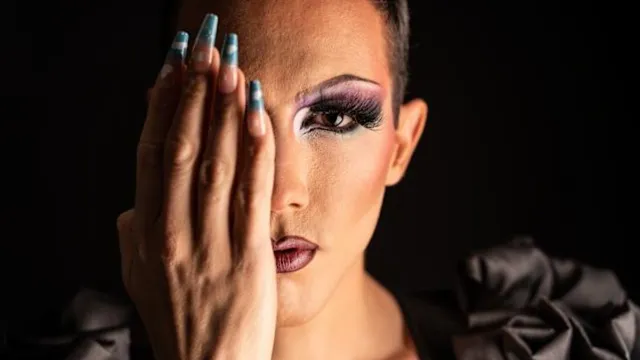- By Supratik Das
- Fri, 01 Aug 2025 10:30 AM (IST)
- Source:JND
While the shocking story of a cross-dressing man named "Sister Hong" takes over Chinese social media, netizens have shifted focus to an off-base but strange 2016 scam. According to the South China Morning Post, the revived tale is about a woman who managed to dupe 20 males into purchasing her iPhones, which she later resold to pay for a down payment on a house. The woman, whose identity has not been publicly revealed, has thus earned the nickname "Master of Sister Hong" on the internet because of her acting abilities and the brazenness of her con. Although the two instances are worlds apart in magnitude and legality, the comparison has generated discussion on manipulation, gendered stereotypes, and internet dating scams.
Who Is the "Master of Sister Hong"?
The initial case happened in Shenzhen, China, almost nine years ago. In a report provided by Qianjiang Evening News in 2016, the woman, a junior office clerk, managed to date 20 men at the same time over a span of six months. She convinced every one of her suitors to give her a new iPhone 7, which she then resold on an electronics platform for over 6,000 yuan per piece. Overall, she made more than 120,000 yuan (about USD 17,000), money that she supposedly used as the deposit on an apartment in her hometown. “We received an order from a woman offering 20 new iPhones. Most of the packaging was unopened,” said an employee from the resale platform. “She earned more than 120,000 yuan in total,” he added.
Her fellow workers were shocked to hear about her double life, particularly considering her sunny and outgoing attitude in the workplace. "She had a very bubbly personality and was on good terms with everyone," one of her female colleagues said. "Nobody thought she would do something like this for money. I heard the company is going to lay her off," she added. It is not clear if she suffered any legal repercussions since no charges or penalties were officially stated. Even with the unscrupulousness of her act, a large number of social media users manifested equal parts admiration and shock. Posts like "Admire, admire, admire! What a multitasking epic" trended as users discussed the moral implications of her actions.
Sister Hong Scandal: A Far Darker Affair
Conversely, the recent Sister Hong scandal featuring cross-dressing male Jiao has attracted criticism for more egregious criminal offenses. In line with the police in Nanjing, Jiao disguised himself as a woman by dressing in long skirts, heavy makeup, and employing voice changers. Jiao allegedly had sex with more than 1,000 men, covertly recording the acts and marketing the videos over the internet through private groups.
Police verified that Jiao, who is also known as "Red Uncle," was arrested on charges of spreading obscene content. Viewers were allegedly charged 150 yuan (approximately INR 1,700) as a membership fee to view these videos. A few men were identified through the videos by their families and partners, leading to emotional trauma, public humiliation, and even the end of relationships. In one instance, a woman recognized her fiancé in the videos. In another, a mother saw that her son, a kindergarten teacher, was among the victims. The authorities continue to investigate how extensive the operation was. Although some reports stated Jiao is in his 60s and recorded 1,691 men, police indicate that the real figure might be less, and that he is assumed to be 38.
ALSO READ: Who Is ‘Red Uncle’? Cross-Dressing Man Secretly Filmed '1,000' Hookup Videos, Sparks Online Outrage
Though the crimes differ dramatically in scale, intent, and consequence, the online community has drawn comparisons due to the deceptive nature of both individuals and their manipulation of romantic or sexual interest for personal gain. In Chinese online culture, the appellation "Master of Sister Hong" is now a generically popular catchphrase applied to describe scheming or manipulative relationships. The viral re-emergence of the 2016 iPhone hoax illustrates how previous tales can resonate with people again when there are contemporary scandals. Though one was financial deception and the other criminal actions and invasion of privacy, both underscore the increasing threats posed by virtual relationships, false self-representations, and trust manipulation in contemporary society.

